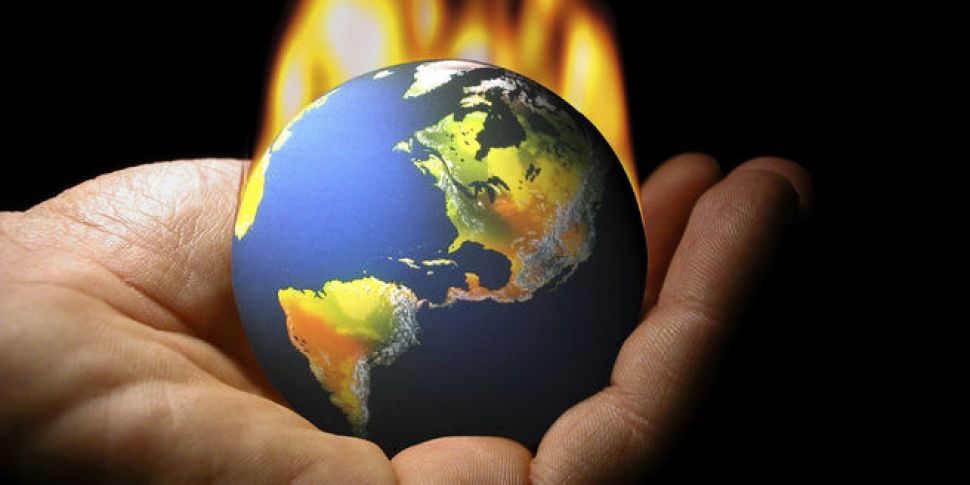At this stage, there should be something reassuringly familiar about the shifting nature of Donald Trump’s policy positions. So frequent have his pivots become, comfort should be found in them. If he takes one position on Monday, we can go to bed that night safe in the knowledge that the opposite will be true on Tuesday.
MINE & BURN
The previous two weeks have been no different. It started with a YouTube message on Monday 21st November to the American people setting out the plan for his first 100 days in office;
On energy, I will cancel job killing restrictions on the production of American energy, including shale energy and clean coal creating many millions of high paying jobs. That’s what we want.
So far, so predictable. During the election campaign, Donald Trump had promised to take these exact decisions once he came to power. Alarm bells were going off all around the world in the conservation community but the alarm bells were expected.
Then came the first sign of a shift in attitude. It didn’t take long.
A POLICY CHANGE?
The next day, the President-elect sat down with several journalists from the New York Times for an extensive conversation about a whole range of policies. Naturally enough, climate change came up.
Previously, Donald Trump had claimed climate change was a hoax perpetuated by China. When James Bennet asked him about the role of human activity in changing the climate however, Trump appeared to change his tune.
I think there is some connectivity. There is some, something. It depends on how much.
And he didn’t stop there. Asked about the Paris climate agreement by Tomas L Friedman, Trump also seemed to row back on campaign promises.
I’m looking at it very closely, Tom. I’ll tell you what. I have an open mind to it. We’re going to look very carefully.
During a speech in May, Trump revealed for the first time his intention to pull America out of the Paris Agreement. He repeated this pledge many times in the months leading up to November and even beyond polling day.
Yet here he was, saying he had an open mind about the deal and that he would merely be examining his options (it should be noted that the outgoing Obama administration recently released a report stating that global climate goals would be missed en masse if the US pulled out of the Paris Agreement).
Both comments elicited two distinct reactions. Firstly, confusion. Secondly, hope. Perhaps his campaign promises were simply empty rhetoric. Perhaps in office, the President-elect would display a much more mindful approach to the green agenda.
But hold on, the week wasn’t over yet.
NASA FUNDING
On Wednesday, Bob Walker, a senior Trump advisor, said that all climate change research conducted by NASA would be “eliminated” as part of a crackdown on “politically correct environmental monitoring”.
Walker went on to say that there were question marks over the role that humans play in climate change and argued that this is a view “shared by half the climatologists in the world”.
It isn’t, by the way. This is something that is regularly researched. The latest body of work was published only this year and showed that over 90% of peer reviewed climate scientists agree that human activity contributes to climate change.
But that’s not the point. The point is that over the course of three days, it was impossible to know quite what approach a Trump administration will take to tackling climate change. If they even decide to tackle it at all.
IVANKA
This week Politico reported that at least one Trump does care about climate change. Ivanka, who is poised to be the first daughter of a sitting President to wield more influence than the First Lady, is planning to make climate change one of her signature issues.
This of course raises the prospect of familial clashes. Reince Priebus, the incoming Chief of Staff, clarified Trump senior’s position on climate change this week – “most of it is a bunch of bunk”.
So it remains to be seen what influence Ivanka might be able to wield, which leaves climatologists, conservationists and anyone who cares about the green agenda in a dark and worrying place. Many are scrambling to work out just what his policies might look like.
But perhaps the strongest indication of environmental policy was not to be found in YouTube messages, interviews or leaks. Instead, much can be discerned from the appointment of Myron Ebell.
WHO IS MYRON EBELL?
The same day that he sat down with the New York Times, Donald Trump formally announced that Myron Ebell would lead the transition of the Environmental Protection Agency. This is the body whose purpose is the protection of the environment through regulation and enforcement.
To understand why Ebell is such an unlikely candidate for this task, it’s useful to know a few things about him.
- Ebell is a vocal opponent of the EPA. The Clean Power Act was developed by the agency to reduce carbon emissions from energy production. It is the linchpin of current climate change and environmental policy in the US. Mr Ebell calls the Act “illegal” and thinks that the new President should repeal it immediately. Speaking in August, he said “I think it would be much better to free up the economy and get rid of the EPA rules and a lot of the Department of Energy programs and let the economy boom forward.”
- Ebell thinks climate change is a good thing. While he agrees with scientists that carbon dioxide is a greenhouse gas and that concentrations of it are causing the global temperature to rise, he argues there is no reason to be alarmed. In fact, he wrote an op-ed for Forbes in 2006 celebrating that milder winters would result from global warming and people wouldn’t have to put up with so many storms. It will also bring, he argues, increased food production and soaring human longevity. For what it’s worth, according to the World Health Organisation, climate change will kill at least 250,000 every year between 2030 and 2050. Ebell didn’t mention that.
- Ebell is not a scientist. He does however have a job title that makes it sound like he might be a scientist. He is the Director of the Centre for Energy and Environment at the Competitive Enterprise Institute. This is a think tank that receives funding from Exxon and the coal industry. It downplays the health and environmental impact of pesticides. It opposes, at every turn, progressive climate change policy in the US. Gavin Schmidt, an actual scientist with NASA, recently told Business Insider that Ebell “uses science like a talisman” to extrapolate “irrelevant and scientifically incorrect” information.
- Ebell chairs the Cooler Heads Coaltion. This is a group who are “focused on dispelling the myths of global warming by exposing flawed economic, scientific, and risk analysis.” They are considered to be one of the more influential groups in the climate change denial industry and have been accused in the past of passing off the views of energy producers as if they are unbiased scientific research.
- Ebell lobbied against the Endangered Species Act. When he first arrived in Washington DC, Ebell worked for John Shadegg, a Republican Congressman from Arizona. His job was to assist to Congressman to change the Act so that it would be ‘more respectful of property rights’. In other words, if someone wants to shoot bald eagles on their own land, let them.
Admittedlty that last one doesn’t have anything to do with climate change directly but it does fit a theme. Myron Ebell is about as far removed from a progressive environmentalist as it is possible to be.
Yet he has just been hired to set the direction of environmental policy in the United States over the next four years.
The country is the second highest emitter of carbon on the planet (after China). If you are wondering whether that will change under President Trump or whether he may or may not pull out of the Paris Agreement, don’t waste time trying to interpret the signals, mixed as they are. Just look at the man handed the reigns at the EPA.









